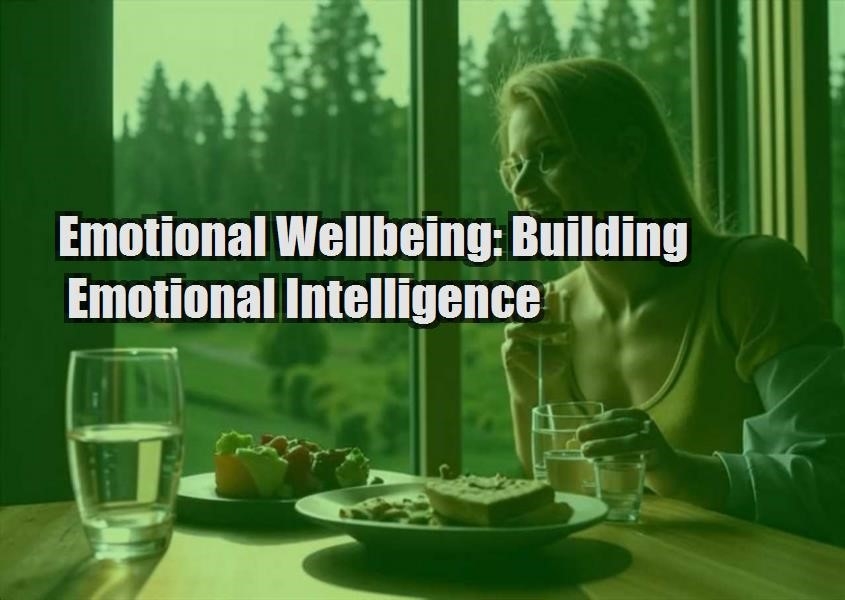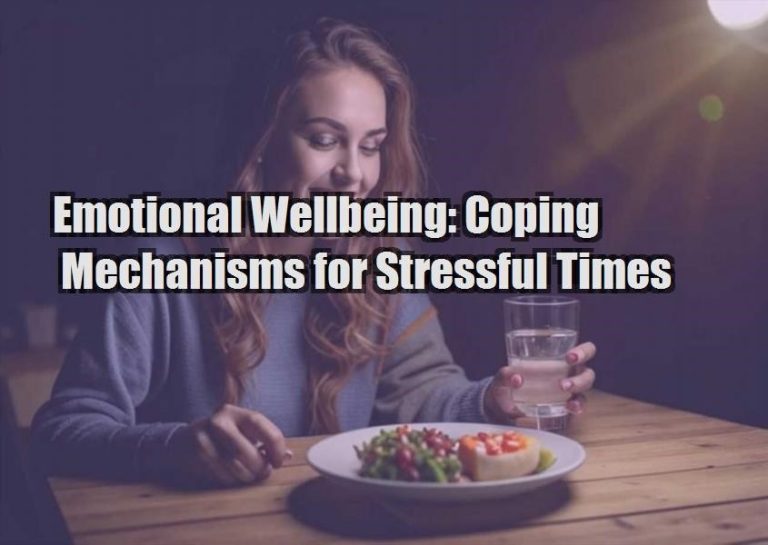Introduction
Emotional wellbeing is a crucial aspect of overall health and wellness. It encompasses the ability to understand, manage, and express emotions in a healthy way. Emotional intelligence (EI) is a set of skills that empowers individuals to harness their emotional abilities for effective functioning. Building EI is essential for personal growth, interpersonal relationships, and professional success.
Understanding Emotional Intelligence
EI comprises several key components:
- Self-Awareness: Recognizing and understanding ones own emotions, values, and motivations.
- Self-Regulation: Managing and controlling emotions, impulses, and behaviors.
- Motivation: Setting and achieving goals, maintaining self-discipline, and persisting in the face of challenges.
- Empathy: Identifying, understanding, and responding to the emotions of others.
- Social Skills: Communicating effectively, building and maintaining positive relationships, and resolving conflicts.
Benefits of Emotional Intelligence
EI benefits individuals in numerous ways:
- Improved Mental Health: High EI is associated with reduced stress, anxiety, and depression.
- Enhanced Relationships: Individuals with strong EI build stronger and more fulfilling relationships with others.
- Increased Productivity: EI enables individuals to manage their emotions and focus their energy on productive tasks.
- Career Advancement: Individuals with high EI are often successful in leadership roles and other positions that require emotional sensitivity.
- Personal Growth: Building EI fosters self-discovery, personal development, and a greater sense of well-being.
Building Emotional Intelligence
Developing EI is an ongoing process that requires effort and practice. Here are some effective strategies:
1. Self-Reflection
Introspection and journaling can help individuals identify their emotional patterns and triggers. Pay attention to how emotions manifest in the body and mind.
2. Mindfulness
Meditation and mindfulness exercises cultivate present-moment awareness and the ability to observe emotions without judgment. Practice focusing on the present moment and accepting emotions as they arise.
3. Cognitive Restructuring
Cognitive restructuring involves challenging negative or irrational thoughts that contribute to emotional distress. Replace negative self-talk with positive and realistic affirmations.
4. Emotion Identification and Labeling
Develop a vocabulary to describe different emotions. Practice recognizing and naming specific emotions in oneself and others.
5. Emotion Regulation Techniques
Learn and practice relaxation techniques such as deep breathing, progressive muscle relaxation, and visualization to manage overwhelming emotions.
6. Seek Support
Consider seeking support from friends, family, or a therapist to process emotions and develop coping mechanisms.
7. Practice Empathy
Make a conscious effort to understand the perspectives and emotions of others. Actively listen, ask clarifying questions, and strive to connect on an emotional level.
8. Set Realistic Goals
Avoid perfectionism and self-criticism. Celebrate successes and learn from setbacks. Building EI is a journey that requires patience and perseverance.
The Importance of Emotional Intelligence in Relationships
EI plays a vital role in healthy relationships. Individuals with strong EI:
- Communicate effectively and respectfully, even during conflicts.
- Show empathy and understanding towards their partners.
- Build and maintain trust through emotional vulnerability.
- Manage their own emotions and avoid projecting them onto others.
- Foster a positive and supportive environment.
Conclusion
Emotional wellbeing and emotional intelligence are essential for a fulfilling and successful life. By understanding and developing their EI, individuals can enhance their mental health, relationships, and overall well-being. Building EI requires effort and practice but ultimately leads to greater self-awareness, emotional resilience, and a deeper connection with oneself and others.







